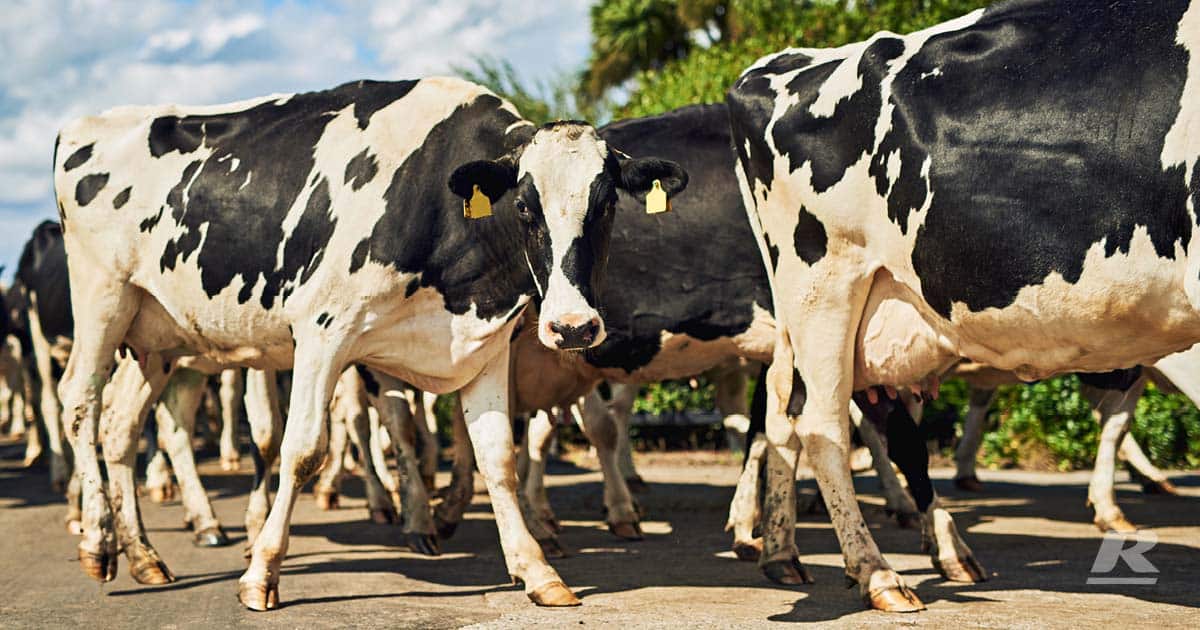The post-calving period is a metabolically demanding phase for dairy cows, marked by rapid shifts from gestation to lactation. Up to 50% of cows experience subclinical metabolic disorders, which can reduce milk yield by 10–15% and increase culling risks. Effective management during this critical window is essential to safeguard cow health, productivity, and farm profitability. Below, we outline common post-calving metabolic disorders, detection strategies, and prevention protocols.
Common Post-Calving Metabolic Disorders
1. Ketosis
- Cause: Negative energy balance due to insufficient glucose production, leading to fat mobilization and ketone body accumulation.
- Signs: Reduced milk yield, lethargy, sweet-smelling breath, and elevated milk or blood β-hydroxybutyrate (BHB ≥1.2 mmol/L).
2. Hypocalcemia (Milk Fever)
- Cause: Sudden calcium demand for colostrum production overwhelms homeostatic mechanisms.
- Signs: Muscle tremors, recumbency, and subnormal blood calcium (<2.0 mmol/L in clinical cases).
3. Displaced Abomasum (DA)
- Cause: Reduced dry matter intake (DMI) and high-concentrate diets lead to gas accumulation and abomasal displacement.
- Signs: Decreased appetite, “ping” sound on abdominal auscultation.
4. Hepatic Lipidosis
- Cause: Excessive fat mobilization overwhelms liver metabolism.
- Signs: Rapid weight loss, jaundice, and elevated liver enzymes.
Early Detection: What to Monitor
- Behavioral Signs: Reduced feed intake, isolation, lethargy, or difficulty rising.
- Production Metrics: Sudden drop in milk yield or quality.
Diagnostic Tools
- Blood Tests: Measure BHB (ketosis), calcium (hypocalcemia), or NEFA (energy deficit).
- Urine pH: Monitor for DCAD (dietary cation-anion difference) effectiveness in dry cows (target pH 6.0–6.5).
- Body Condition Scoring (BCS): Avoid BCS >3.5 pre-calving; post-calving loss should not exceed 0.5 BCS/month.
Prevention Strategies
1. Nutritional Management
Pre-Calving Diets:
- Implement a negative DCAD diet (-50 to -150 mEq/kg DM) 3 weeks pre-calving to prime calcium metabolism.
- Limit energy intake to prevent over-conditioning (target BCS 3.0–3.5).
Post-Calving Diets:
- Provide highly digestible forages (e.g., alfalfa) and fermentable carbohydrates to boost DMI.
- Supplement with rumen-protected choline (15 g/day) to support liver function and fat metabolism.
2. Mineral Supplementation
- Administer oral calcium (e.g., 50–75 g calcium) at calving and 12 hours post-calving for high-risk cows.
- Ensure adequate magnesium (0.35–0.40% DM) and vitamin D (30,000–50,000 IU/day) to enhance calcium absorption.
3. Herd Health Protocols
- Fresh Cow Monitoring: Check cows twice daily for appetite, manure consistency, and mobility in the first 14 days post-calving.
- Ketosis Screening: Test all cows for BHB 3–7 days post-calving; treat subclinical cases (BHB 1.2–3.0 mmol/L) with propylene glycol (300 mL/day for 3–5 days).
4. Stress Reduction
Avoid paddock moves or social stress during the transition period.
Treatment Protocols
- Ketosis: Oral propylene glycol, dextrose IV, or glucocorticoids.
- Milk Fever: IV calcium gluconate (500 mL of 23% solution), followed by oral calcium supplements.
- DA: Surgical correction or rolling under veterinary guidance.
Economic and Welfare Impact
Subclinical ketosis costs $145–290 per case due to lost milk and treatment. Proactive management reduces veterinary costs, improves fertility, and extends productive lifespan.
Post-calving metabolic disorders are preventable with targeted nutrition, vigilant monitoring, and stress mitigation. By prioritising transition cow management, farmers can enhance herd health, maximise milk production, and secure long-term profitability. As the adage goes, An ounce of prevention is worth a pound of cure”—nowhere is this truer than in dairy transition management.
For tailored guidance on enhancing your herd’s nutrition and management practices, turn to the dairy specialists at Reid Stockfeeds. We offer animal feed in both pellet and mash form and are dedicated to empowering you with expert advice to support the health and performance of your cows.. Call 1300 REID FEED or enquire here >
 Author
Author
Dominique Smits
Sales and Nutrition Account Manager

 Author
Author